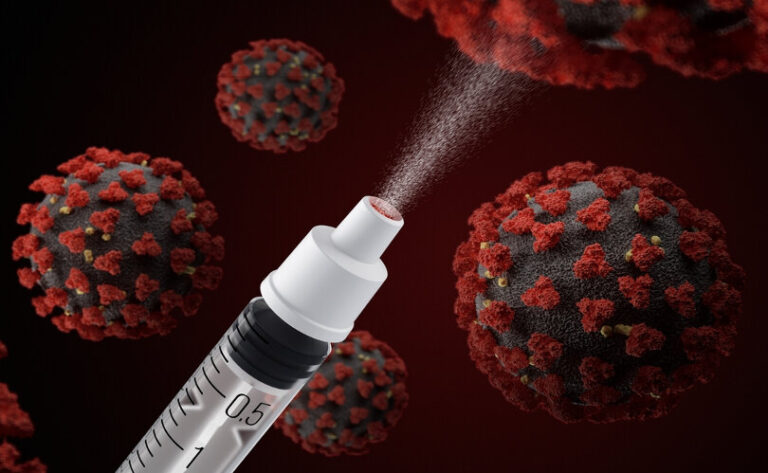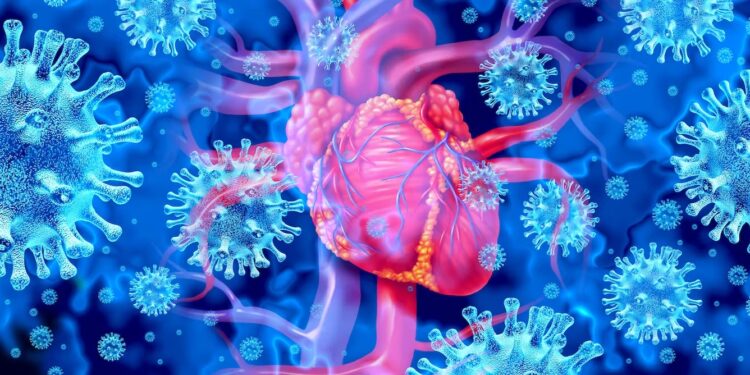Adverse Events From COVID Vaccination More Likely With Prior COVID Infection

People who have moderate to severe COVID-19 prior to vaccination may have increased reactogenicity to COVID-19 vaccines, according to a Canadian study.
Individuals who have previously been infected with SARS-CoV-2 develop immunity and may be more likely to experience adverse events following COVID-19 vaccination, according to a study published in Clinical Infectious Diseases.
A large prospective observational study was conducted by Canadian researchers to assess the short-term safety of COVID-19 vaccines in adults with a history of SARS-CoV-2 infection.
Participants in the study were sent an electronic questionnaire seven days after receiving their first, second, and third vaccine doses to determine whether adverse events following vaccination interfered with daily activities, attendance at work or school, or necessitated medical care, including hospitalization.
The analysis included 684,998 vaccinated participants, of which 369,406 received Pfizer’s COVID-19 vaccine, 201,314 received Moderna, and 113,127 received AstraZeneca’s viral vector vaccine.
There were 18,127 people (2.6 percent) who had a previous laboratory-confirmed COVID-19 infection two to six months before getting their first dose of vaccine.
Individuals who had previously been infected with SARS-CoV-2 were more likely to have an adverse event the week after vaccination, regardless of vaccine type, that interfered with daily activities, school, or work or required emergency department visits or hospitalization, according to the study.
The increased risk associated with previous SARS-CoV-2 infection was still present after the second and third vaccine doses, but it was reduced when compared to the first dose.
After mild or asymptomatic infection, the association was lower or absent for all doses. In other words, the risk was greatest in those who had moderate to severe COVID-19 prior to vaccination.
Furthermore, mRNA COVID-19 vaccines continued to stimulate immune responses in previously infected people, whereas AstraZeneca’s viral vector vaccine did not. Researchers discovered that after receiving a booster—or third vaccine dose—from Pfizer or Moderna, a higher proportion of previously infected participants reported adverse events that interfered with daily activities, school, or work—or that required medical intervention.
“The association is stronger after the first dose than after the second and third doses,” the study’s authors wrote. “Providers should consider additional vaccine counseling on expected adverse effects for individuals previously infected with SARS-CoV-2 prior to vaccination,” the authors wrote.
“These findings are not surprising, nor should any immunologist be surprised,” Dr. Hooman Noorchashm, a public health advocate and immunologist, told The Epoch Times. “If you vaccinate people who’ve experienced natural infection, especially recently, you’re potentially opening the door to medical complications.”
Dr. Noochashm described the case of J. Barton Williams, a young orthopedic surgeon who died on Feb. 8, 2021, from multi-system inflammatory syndrome (MIS) after receiving his second dose of Pfizer’s COVID-19 vaccine. MIS is a rare and severe immune reaction that can occur weeks or months before receiving a COVID-19 vaccine and can result in significant organ damage.
“There were several high profile deaths, like Williams’ with previous COVID-19, who then received one or two vaccine doses, experienced a hyperimmune response, and died,” the doctor said.
When COVID-19 vaccines were first approved, Dr. Noorchashm attempted to bring this issue to the attention of vaccine manufacturers and the US Food and Drug Administration (FDA). He was concerned that those with prior infection who were required to be vaccinated under vaccine mandates might be at a higher risk of experiencing an adverse event, and he advocated for screening antibody levels prior to vaccination.
“In general, a standard of care is to screen before you vaccinate to assess whether one has immunity,” the doctor said. “Because COVID-19 vaccines have a side-effect profile that includes myocarditis and blood clots, even if they are rare, you have to be cautious when vaccinating millions of people in a short period of time with an experimental vaccine.” At the very least, those who want to know whether they really need the vaccine should have access to technology.”
Nonetheless, the Food and Drug Administration (FDA) issued guidance “reminding the public and health care providers that results from currently authorized SARS-CoV-2 antibody tests should not be used to evaluate a person’s level of immunity or protection from COVID-19 at any time, and especially after the person received a COVID-19 vaccination.”
Dr. Noorchashm was concerned by the FDA’s guidance because allowing physicians to assess antibody levels prior to vaccination can prevent potentially severe adverse effects and ensures that only those who require a vaccine are vaccinated.
“Screening for immunity is a standard of care, so why not make it available to citizens?” “What was the source of the opposition?” Noorchashm inquired. “The FDA provided no justification for its guidance advising against screening for antibodies—which indicate previous SARS-CoV-2 infection.” If the goal is to ensure that everyone is immune, that is very different from ensuring that everyone is vaccinated.”
In pre-licensure trials of COVID-19 vaccines, vaccine manufacturers did not systematically assess individuals with a history of SARS-CoV-2 infection, according to the study published in Clinical Infectious Diseases. Nonetheless, Dr. Noorchashm, who does not question the efficacy of COVID-19 vaccines, stated that doing so would have been simple.
He also mentioned what the study didn’t include: people who had already developed natural immunity through previous infection but died as a result of vaccination and were unable to respond to a questionnaire.
“I’m glad more research is being done on this, but it could have easily been done years ago during the pandemic,” the doctor said.





